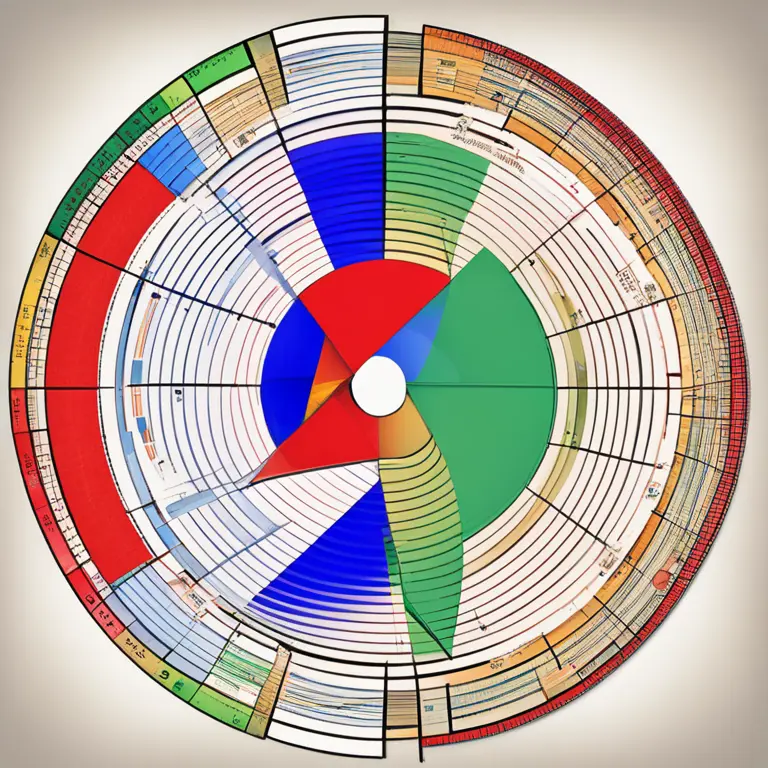
The Essence of Biorhythms: A Fundamental Guide
Delve into the essentials of biorhythms, understanding the natural cycles that govern our physical, emotional, and intellectual well-being.
article by Adrian Wallace
Introduction to Biorhythms
The concept of biorhythms stems from the idea that our lives are influenced by natural physiological cycles. These cycles are thought to affect our physical, emotional, and intellectual capabilities. The theory of biorhythms suggests that by understanding these patterns, individuals can anticipate their peak performance periods and times of potential weakness. Originating in the 19th century, biorhythms have since become a topic of interest for those seeking insight into personal well-being.

Physical Biorhythm Cycle
The physical biorhythmic cycle, lasting approximately 23 days, is believed to influence our strength, endurance, and overall physical state. Advocates affirm that when this cycle is at a high point, we may experience heightened physical vitality and robust health, whereas a low phase could signify times of reduced stamina and potential for physical challenges. Awareness of this cycle can ostensibly aid in planning activities that require physical exertion.

Emotional Biorhythm Cycle
The emotional cycle spans about 28 days, paralleling the lunar month. It purportedly governs our mood, creativity, and emotional stability. When the emotional biorhythm is on an upward swing, individuals might find themselves more cheerful, stable, and responsive. Conversely, the downturn of this cycle could coincide with feelings of emotional distress or heightened sensitivity. Tracking this cycle is said to help in managing social interactions and emotional health.

Intellectual Biorhythm Cycle
With a 33-day duration, the intellectual biorhythm is believed to impact cognitive functions such as analysis, logic, and memory. Periods of high intellectual biorhythm might be optimal for engaging in mentally demanding tasks, learning new skills, or making important decisions. A low point in this cycle, on the other hand, could lead to a lack of concentration and indecisiveness, implying that it might be beneficial to avoid complex tasks during these times.

Integrative Application of Biorhythms
Practical application of biorhythms involves monitoring the intersection of these cycles to manage one's activities for optimal performance and well-being. While the scientific community remains skeptical about the empirical validity of biorhythms, enthusiasts continue to use them as a personal tool for planning life events. By considering these rhythms, it's believed you can improve job performance, athletic training, and interpersonal relationships.
Modern Perspectives on Biorhythms
With advances in technology, monitoring biorhythms has become increasingly accessible through apps and online platforms, aligning with the widespread interest in self-optimization and personal analytics. As of 2024, the discussion around biorhythms also merges with trends in personalized health and predictive analytics, despite a lack of conclusive scientific evidence supporting the theory.
Conclusion: Biorhythms' Place in Personal Well-being
While scientific scrutiny continues to challenge the foundational claims of biorhythm theory, its popularity endures among those who advocate for holistic and alternative approaches to wellness. As with many personalized health methods, individuals' experiences and beliefs significantly shape the relevance and use of biorhythms in their lives. Whether one regards biorhythms as a scientific curiosity or a useful personal tool, their role in the dialog on health and self-awareness is undeniably persistent.
Published: 1/30/2024
Modified: 1/30/2024
More predictions
Come back here soon to learn more about yourself and your future


Biorhythm Compatibility: Sync Your Cycles for Harmony
Discover the intriguing connection between biorhythms and relationship harmony. Learn how syncing your biological cycles can foster deeper compatibility.


The Rhythms Concept: A Guide to Biorhythms
Discover the intriguing concept of biorhythms: the cyclic patterns influencing our physical, emotional, and intellectual states.


Unlocking The Biorhythms Guide
Delve into the fascinating world of biorhythms to learn how they influence your physical, emotional, and intellectual states, potentially shaping your daily life and decisions.